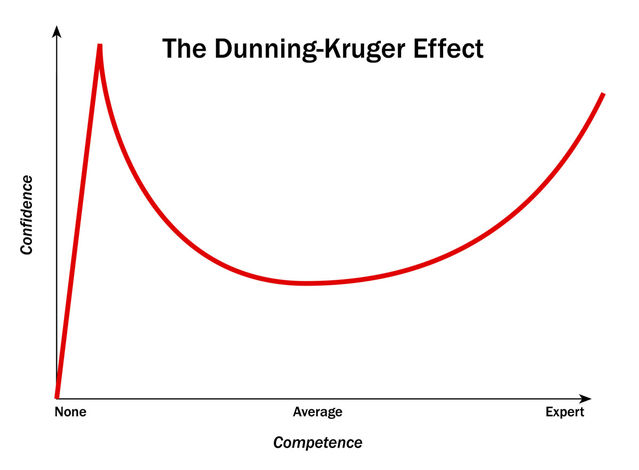Meditations and Learnings
Meditations and Learnings
Overcoming the Dunning-Kruger Effect

Some of the best techniques for working against the Dunning-Kruger effect were developed during the enlightenment. Instilling a habit of skepticism such that the “unknown unknowns” pitfall can be better avoided. Pairing this with an approach of disconfirmation, as opposed to confirmation, of what one believes is important.
Encouraging a performance analysis based on the perception of the skill level, rather than the actual performance itself, can often be nearer the truth. This is an abstract reasoning of the output based on the input rather than a focus on only the output.
As important notion is acceptance of the Dunning-Kruger effect; we are all susceptible to its wily ways. Knowing this we should build in a “DK Buffer” to estimations or reviews. This depends on the context, and so taking for example the guessing at the duration of a project, multiply the time you believe it will take by a factor of 2 or even 3.
If you are proficient in an area, try to remember back to what it was like before you knew something. Recognise that other people have their own areas of expertise, and stop assuming competence where it may well not exist - this may sounds pessimistic but actually results in wonder treatment to those around you.
A collective Dunning-Kruger effect can result in poor recognition of genius and talent. If a group with certain skills try to assess a similarly skilled individual they may find the subject somewhat unimpressive despite the fact perhaps that they are still within the top 0.001% achievers in a particular domain.